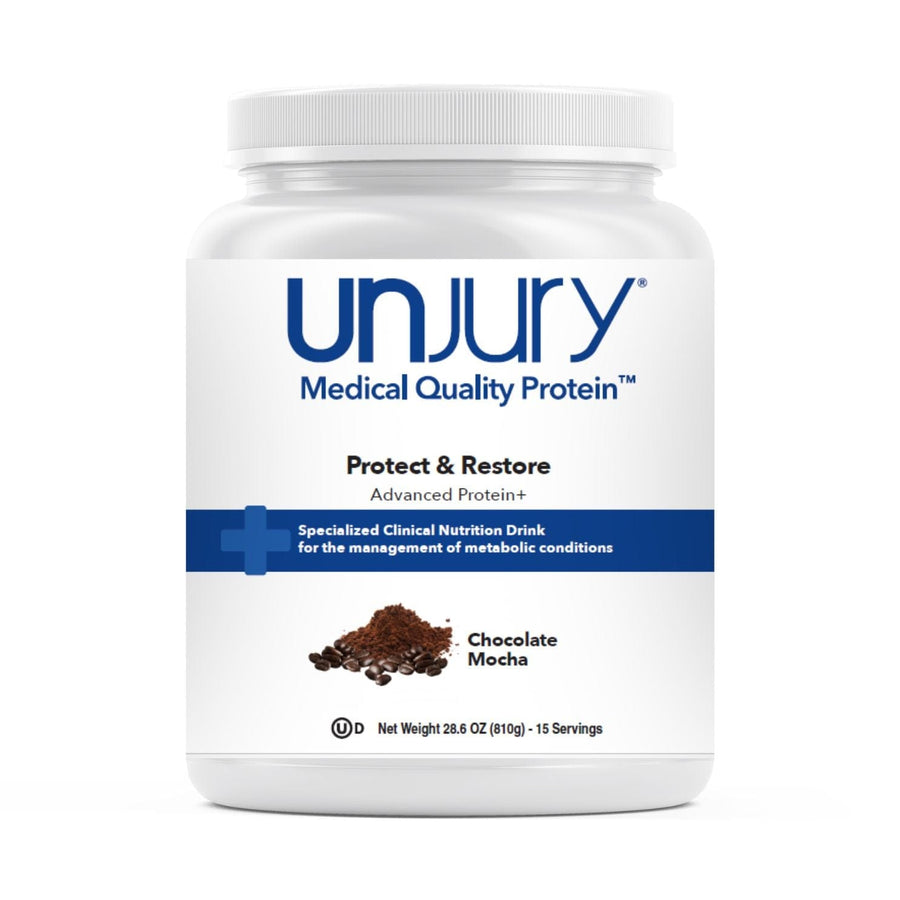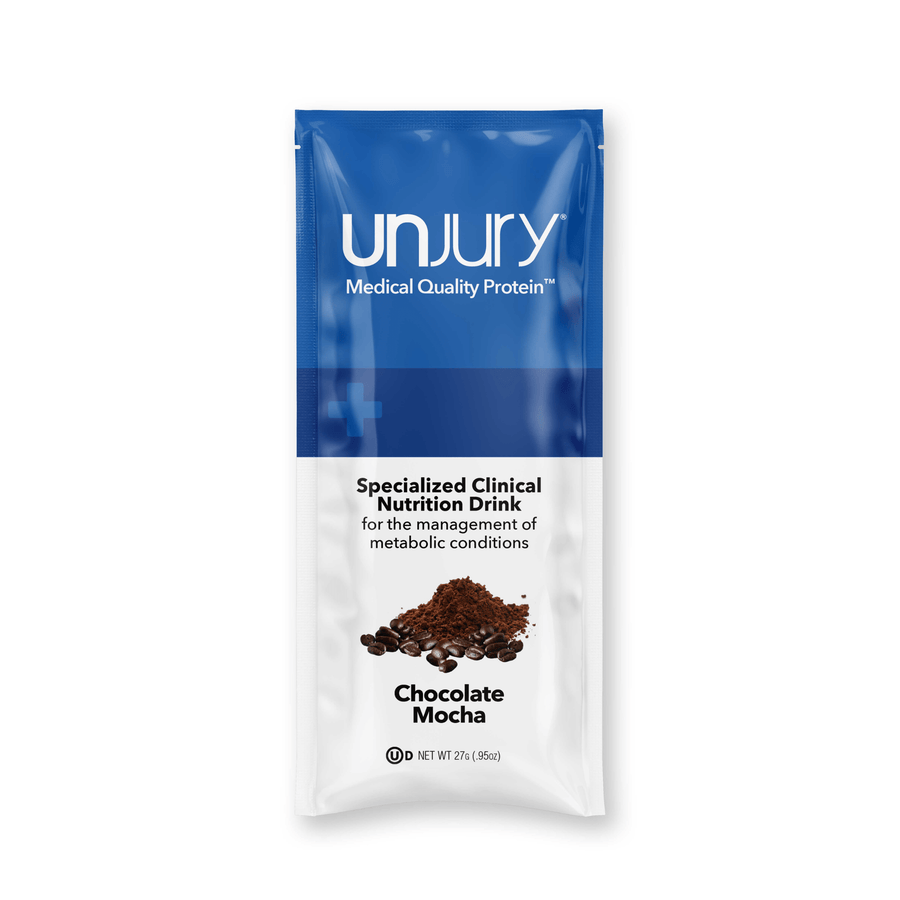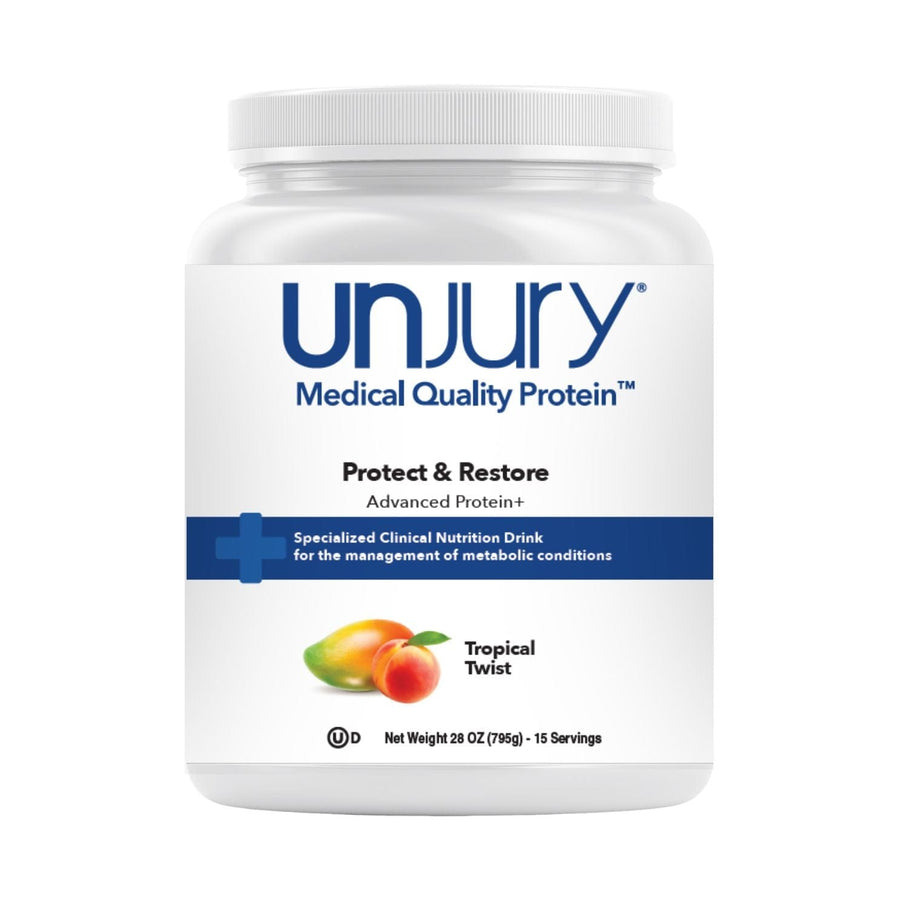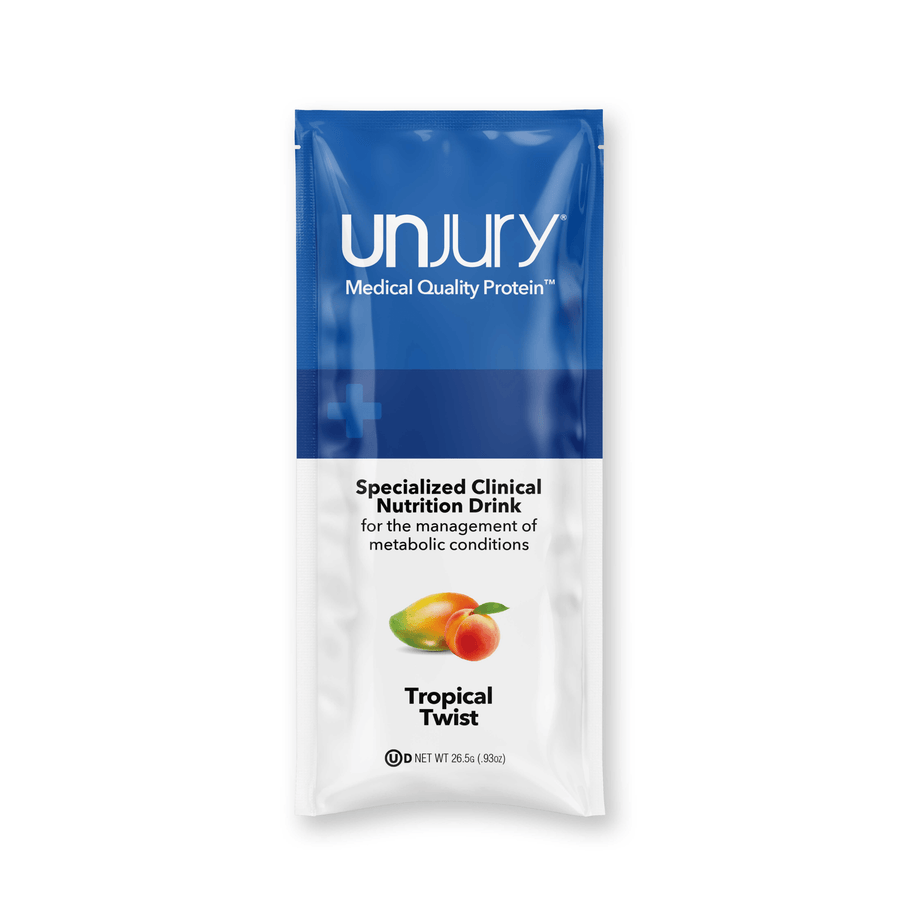The Domino Effect of Muscle Loss
Lately, a hot topic of conversation has been about muscle loss and what it means for our health, especially with the introduction of GLP-1 RA weight loss medications.
But did you know that losing muscle can also happen as we get older, when we're sick, or if we're not active enough?1,2
In this blog, we’ll explore the domino effect that occurs when we lose muscle and share some effective tools for keeping our muscles strong and healthy.
Why Does Muscle Loss Happen?
Muscle loss is defined by quite a few names, including sarcopenia and muscle wasting. Loss of skeletal muscle can occur due to various factors, ranging from natural aging processes to lifestyle choices.
Here’s a breakdown of some common reasons muscle loss happens:
- Aging
- Inactivity
- Poor nutrition
- Chronic illness or disease
- Hormonal changes
- Some medications, such as weight loss medications
When our bodies break down muscle faster than they can rebuild it (protein synthesis), a condition called muscle loss occurs.3 This imbalance between muscle breakdown and muscle protein synthesis happens every day, but it becomes problematic when we lose more muscle cells than we can replace.
This can be triggered by factors like loss of appetite, weight loss, or illness, which deprive our bodies of the essential nutrients needed for muscle building.
Muscle Is Critical to Overall Health—Beyond Physical Strength
Muscle mass plays a huge role in our overall health and vitality. It's not just about looking strong; it impacts various aspects of our well-being. When we lose muscle and strength, it's not just about physical appearance—it's linked to a range of health issues, including heart disease, diabetes, frailty, and dementia.4
Maintaining healthy muscle can play an active role in managing blood sugar levels and protecting against the development of diabetes. Our muscles help to regulate blood sugar by utilizing sugars and carbohydrates for energy or storing them as glycogen to maintain stable blood sugar levels. The good news is that individuals with more muscle are less likely to develop diabetes as they age.5
Over time, the decline in muscle mass can contribute to insulin resistance, a significant risk factor for cardiovascular diseases. Numerous studies have highlighted the connection between the progression of cardiovascular conditions and the decline in muscle function.6
In essence, preserving muscle mass isn't just about looking fit—it's about safeguarding our health and lowering the risk of serious conditions like diabetes and cardiovascular diseases. By prioritizing muscle health through regular exercise and a balanced diet, we can enhance our overall well-being and longevity.
The Domino Effect: Consequences of Muscle Loss
In addition to the heightened risk of metabolic diseases, muscle is essential for everyday movement, posture, and balance. When we lose muscle, it can increase the likelihood of falls and make routine tasks like household chores, grocery shopping, and traveling more challenging. Furthermore, muscle loss can slow your ability to recover from illnesses or injuries, impacting your long-term quality of life.
In simple terms, muscle is crucial for your overall health and well-being. Protecting it should be a top priority to maintain your independence and vitality for years to come.
Protecting Muscle: Benefits of Protein and Strength Training
Consuming high-quality protein and engaging in regular strength training offers various health benefits, including improved blood sugar control and slowing bone loss.2 To maintain muscle mass and strength, it's essential to focus on both your diet, specifically dietary protein intake, and exercise routine, including resistance training, consistently.
You’ve likely heard us emphasize before the importance of “30-30-30:” 30 grams of high-quality protein, three times a day, spread throughout the day.
Here are some examples of high-quality protein sources and simple exercises that can aid in rebuilding muscle and enhancing strength:
High-Quality Protein Sources:
- Lean meats such as chicken, turkey, and beef
- Fish and seafood, such as salmon, tuna, and shrimp
- Eggs and dairy products like Greek yogurt, cottage cheese, and milk
- Plant-based sources like tofu, tempeh, lentils, and beans
- Recommended supplements, such as whey protein powder or advanced protein solutions like Protect & Restore Advanced Protein+
Easy Exercises to Rebuild Muscle:
- Bodyweight exercises like squats, lunges, push-ups, and planks
- Resistance band exercises for targeting specific muscle groups
- Dumbbell or kettlebell exercises for added resistance
- Yoga or Pilates to improve flexibility, balance, and muscle tone
By incorporating these protein-rich foods into your diet and incorporating simple strength-building exercises into your routine, you can support muscle growth and maintenance for better overall health.
Summary
Muscle loss is a significant concern beyond weight management, stemming from factors like aging, illness, inactivity, and poor nutrition. Understanding its causes is crucial, as muscle plays a vital role in overall health, including blood sugar regulation and cardiovascular support.
Preserving muscle through regular exercise and a balanced diet is essential for longevity and quality of life. To counter muscle loss, focus on incorporating high-quality protein sources and strength training exercises into your routine, following guidelines like the "30-30-30" rule for protein intake. Prioritizing muscle health can enhance well-being and independence as we age.
References
1. Rivas DA et al. Encyclopedia of Human Nutrition (Third Edition). 2013;193-199.
2. Evans WJ. Am J Clin Nutr. 2010;91(4):1123S-1127S.
3. Litwack G. Human Biochemistry. 2018;ch.11:319-336.
4. Cavalcante BR et al. J Nutr Health Aging. 2023;27:926–928.
5. Scott D et al. Med J Aust. 2016;205(7):329-333.
6. He N et al. Front Cardiovasc Med. 2021;8:743710.
This blog is for information and education purposes only. This information is not intended to substitute professional medical advice, diagnosis, or treatment. Please consult with a qualified healthcare provider with any questions in regard to a medical condition. A qualified healthcare professional can best assist you in deciding whether a dietary supplement is suitable based on your individual needs.














